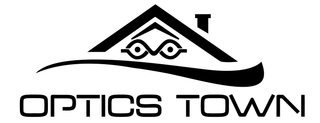Blue light glasses have become increasingly popular as people spend more time in front of screens. These glasses claim to reduce eye strain, improve sleep quality, and protect your eyes from the harmful effects of blue light. But are they worth the hype? Let’s explore what blue light glasses are, how they work, and whether they’re right for you.

What Are Blue Light Glasses?
Blue light glasses are eyewear with special lenses designed to filter or block blue light emitted by digital devices such as computers, smartphones, and tablets. Unlike regular glasses or sunglasses, these lenses specifically target the artificial blue light that can cause eye discomfort and disrupt sleep.
Prolonged exposure to blue light, especially at night, can interfere with the body’s circadian rhythm—the internal clock that regulates your sleep-wake cycle. This happens because blue light suppresses melatonin, the hormone responsible for sleep. By wearing blue light glasses, you may reduce these disruptions, leading to improved sleep and less eye fatigue.
Understanding Blue Light and Its Effects

Blue light is a high-energy, short-wavelength light found in natural sunlight and artificial sources like screens and LED lights. While some exposure to blue light during the day is beneficial for alertness and mood, excessive exposure—especially from screens—can lead to:
- Digital eye strain: Symptoms include dryness, irritation, and difficulty focusing.
- Sleep disturbances: Evening screen use can delay melatonin production, making it harder to fall asleep.
- Headaches: Blue light can cause eye strain that contributes to tension headaches.
Using blue light glasses can help mitigate these issues by reducing the amount of blue light reaching your eyes.
Benefits of Blue Light Glasses
1. Reduce Digital Eye Strain
Blue light glasses filter out harmful wavelengths, alleviating eye discomfort caused by prolonged screen use. Pairing these glasses with habits like the 20-20-20 rule—looking at something 20 feet away for 20 seconds every 20 minutes—can further minimize strain.
2. Improve Sleep Quality
Wearing blue light glasses in the evening helps your body maintain a healthy sleep cycle by reducing melatonin suppression. If you often find yourself scrolling on your phone before bed, these glasses can help prepare your body for restful sleep.
3. Minimize Headaches
For those prone to light sensitivity or tension headaches, blue light glasses can offer relief by decreasing the intensity of blue light exposure. They’re especially helpful during long workdays in front of a computer.
4. Protect Long-Term Eye Health
While the science is still evolving, some experts believe that reducing exposure to artificial blue light may help protect the retina from potential long-term damage, though more research is needed to confirm this.
Key Features
Light Filtering Technology: Adjusts the light entering the eye to enhance contrast between colors.
Customization: Tailored lenses for specific color blindness types, including prescription options.
UV Protection: Protects eyes from harmful ultraviolet rays, making them functional outdoors.
Benefits of Color Blind Glasses
Improved Color Differentiation
Colors like red and green become more vivid and distinct, making everyday tasks easier.
Enhanced Visual Experiences
Activities such as viewing art, identifying traffic lights, or appreciating nature become more accessible.
Do Blue Light Glasses Really Work?
Blue light glasses can be effective, but they’re not a magic solution. Their effectiveness largely depends on how much screen time you have and your overall habits. For example:
- They help with eye strain by filtering blue light and reducing glare.
- They can support better sleep if used alongside screen time limits before bed.
- They work best when combined with other eye care practices, such as regular breaks and proper lighting.
While these glasses won’t eliminate all eye discomfort, they are a helpful tool for reducing strain and supporting eye health.
Choosing the Right Blue Light Glasses
Lens Tint and Coating
- Yellow or amber-tinted lenses block more blue light and are ideal for evening use.
- Anti-reflective coatings reduce glare from screens, improving clarity and comfort.
UV Protection
Many blue light glasses also include UV protection, safeguarding your eyes from sunlight exposure. Look for certification to ensure your lenses meet quality standards.
Style and Fit
Choose glasses that are comfortable and suit your lifestyle. Brands like Warby Parker, Felix Gray, and EyeBuyDirect offer stylish options with various levels of blue light filtering.
Top Tips for Reducing Digital Eye Strain
- Follow the 20-20-20 Rule: Every 20 minutes, look at something 20 feet away for 20 seconds.
- Adjust Your Screen Settings: Lower screen brightness or enable blue light filters on your devices.
- Take Regular Breaks: Stand, stretch, and give your eyes a rest every hour.
- Use Proper Lighting: Avoid working in dim environments that increase eye strain.
Common Myths About Blue Light Glasses
- “They fix all eye problems.” While they reduce strain and improve comfort, they’re not a cure-all for vision issues.
- “You need them for all screen use.” They’re most beneficial during extended screen time, especially at night.
- “They guarantee better sleep.” Glasses can help, but good sleep hygiene (like reducing screen time before bed) is also crucial.
Conclusion
If you spend hours in front of screens, blue light glasses can be a great addition to your routine. They reduce eye strain, promote better sleep, and help prevent discomfort from prolonged screen exposure. However, they’re most effective when combined with healthy habits like taking regular breaks, adjusting screen settings, and limiting evening screen time. Get to know wholesale glasses like blue light glasses at Optics Town.
FAQ
Do blue light glasses help with sleep?
Yes, especially when worn in the evening. They block blue light that disrupts melatonin production, helping you fall asleep faster.
Can they prevent headaches?
For many people, blue light glasses reduce the eye strain that contributes to tension headaches during prolonged screen use.
Are they necessary for everyone?
Not necessarily. They’re most beneficial for those with high screen exposure or sensitivity to blue light.
Can I wear blue light glasses all day?
Yes, but they’re particularly helpful during screen-heavy activities or before bedtime.




